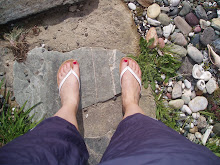How does professional development, reflective practice & supervision act to support professional practice?
Professional development, reflective practice and supervision actively undertaken by the massage practitioner can assist in the development of professional practice by adding to pre-existing knowledge and concepts, refining self-awareness and assisting the practitioner to better hone their interpersonal and situational skills in a workplace setting, within a predominantly people-oriented profession.
The massage practitioner may choose to develop their professional skills via further formal education, attending conferences, workshops or additional courses on related modalities (e.g. acupressure, Reiki, cranio-sacral therapy). Educating the wider public on aspects of massage therapy that are not common knowledge will add to the general perception of the therapeutic massage industry and career path. This can be done through the publication of journal articles relevant to the sphere of healthcare, giving talks/guest speeches on related aspects of massage therapy, printing personal opinion pieces and having a personal blog, all of which educate and improve awareness of massage therapy and what we hope to achieve as practitioners of this modality.
I personally believe that written articles on massage outlining the benefits to the individual/society as a whole may be more beneficial, due to the wider range of people likely to interact with this piece (read it/reference it) and the longevity of it (considering it is immortalised in a publication).
Reflective practice can be enhanced by allowing clients to voice their comments and observations in an anonymous way, such as via the use of anonymised feedback forms and boxes in which observations can be placed, as these will assist in refining the practitioner's processes by adding a valuable third party perspective.
Supervision is also crucial in the professional development of the massage practitioner, and can assist by following an eight step process that identify areas needing improvement, using the following stages:
Practice - The reflective practitioner needs to develop their self-awareness, reactions to their environment and look at how they personally deal with situations that arise. It is through practising that the practitioner can identify the areas that can be worked on, and be alerted to any need for reflection and/or supervision in their practices.
Select - identify a clinical situation that stands out from the rest as being particularly significant and useful to the practitioner's professional development via reflection. This situation may be emotionally charged, and appear intuitively important to the practitioner as something that must be addressed.Describe - Remember the experience and its details, see from both the observer's point of view as well as first hand experience, fill in the knowledge gaps experienced then, and potentially, now.
Reflect - With the knowledge and clarity you now have regarding the situation, reflect on what happened, your role, the role of any other individual and how you felt about this/what you perceive they have felt, continually looking from all angles.
Research - Investigate the situation further, identify whether this is a common situation when the variables are kept constant, or an unusual situation. Were the actions of all parties involved typical/consistent with what occurred in the situation? Where can I as the practitioner improve my interactions to achieve a more favourable future result?
Plan - Identify strategies for improving the expected outcome of a potential situation, particularly ways in which altering or becoming aware of personal behavioural patterns/ways of interacting can affect this outcome.
Alter practice - The actual implementation of these strategies into the existing operational processes and personal ways of interacting in particular situations, especially ones similar to those outlined above.
Monitor - Methods of feedback and observation of the alteration and improvement of operational processes, regular supervision to give a third party perspective on the situation, and to assist with self-awareness in the outlined situations.
By actively choosing to improve on their pre-existing knowledge, skill base, interpersonal skills and self-awareness, the practitioner is in the best possible position to effectively develop their professional abilities and simultaneously support the massage industry via conscious self-improvement and public awareness of massage therapy as a viable and effective healthcare modality.
References:
Elluminate: Multi-Disciplinary Practice (21st & 22nd of October 2009). Otago Polytechnic Massage Therapy Diploma Course.
My own thoughts.

No comments:
Post a Comment